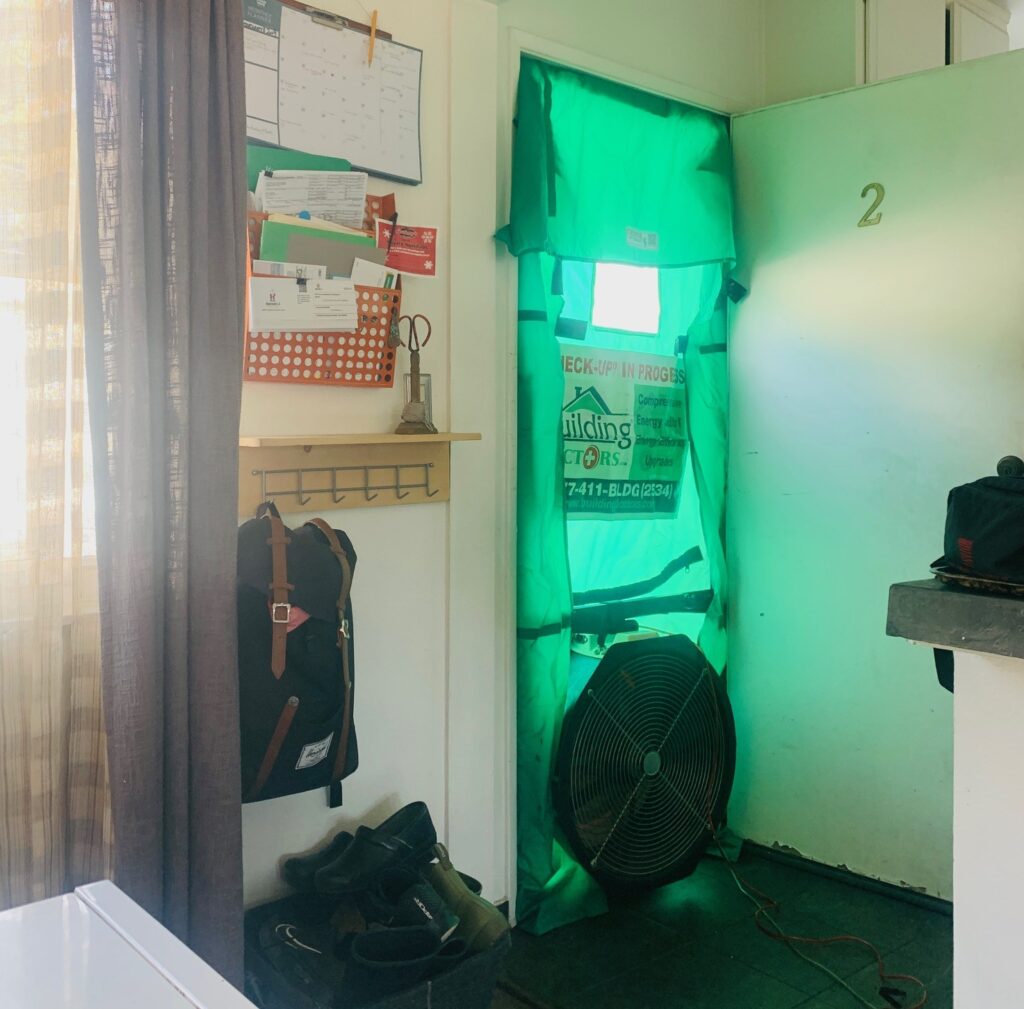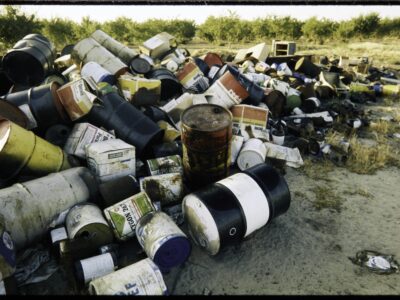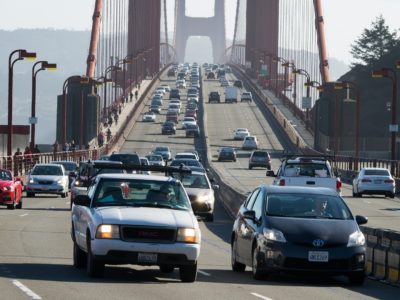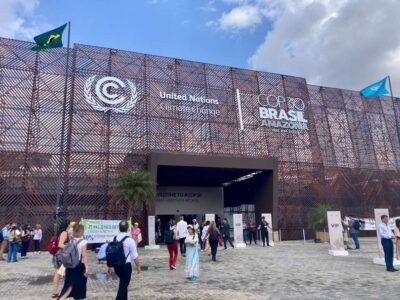Why Do Heat Pumps Have a Bad Rap? Lies
The Drain is a weekly roundup of environmental and climate news from Legal Planet.

I just listened to dozens of people tell me that heat pumps don’t work, may cause homelessness, and can bankrupt small businesses. This was shocking news to me, in no small part because I’m currently in the process of installing a heat pump in my condo.
Obviously, I don’t want to waste money, sleep on the street, or see my local bakery go belly up. Should I call up my contractor and tell him we are sticking with our 1960s gas furnace? No, of course not. This is a hit job!
Welcome to The Drain, a weekly roundup of environmental and climate news. Subscribe to the newsletter here.
These critics of heat pumps — Orange County realtors, Chamber of Commerce lobbyists, gas company spokespeople, and small city mayors — were commenting at Friday’s meeting of the South Coast Air Quality Management District as air regulators voted on a pair of rules to encourage zero-emission heat pumps and electric water heaters. The rules failed 7-5, as I wrote about here. (My colleague Cara Horowitz and I wrote an explainer here.)
I know firsthand the costs and the benefits of reducing gas pollution in my home. We had an energy audit performed that resulted in a thorough report outlining the poor indoor air quality caused by leaks in our building, poor ventilation, insufficient insulation, and aging gas appliances. My partner and I, and our 9-year-old, don’t have central heating and cooling, so we sweat through LA summers with a single window AC-unit and shiver through our (mild) winters with nothing but a space heater. Our ancient wall furnaces are red tagged for leaks.

Our choice to install a Fujitsu Heat Pump Air Handler and a Heat Pump Condenser will cost us more than $6,600 for the appliance, not including the labor or the additional work we’re choosing to have done. The heat pump will work with our old and quite limited electric panel. But we may or may not get any of the rebates or incentives, like the $1,500 TECH Clean California one. While I recognize that’s an upfront cost that many folks can’t afford, let’s get a few things straight: the rejected SCAQMD rules would not have forced anyone in the South Coast to convert. If you like your 15-year-old water heater, you can keep it. Whenever it is time to replace a dead unit or upgrade, rules like these make it easier to do so. Climate change is making it harder to live without heating and cooling, so if I’m choosing between investing in a gas system or a more efficient heat pump, it’s not a hard choice. And pollution brings less visible costs too. So no, I’m not swayed by industry talking points on heat pumps or on relatively moderate policies to nudge manufacturers to produce more zero-emission appliances.
But watching the 6-hour board meeting was unsettling, depressing — infuriating even — because it showed the power of industry disinformation. Many of the people who signed up to speak — and even some of the voting board members — incorrectly characterized the rules as a gas ban and an electrification mandate.
“I, like everyone here, support clean air,” said OC Supervisor Janet Nyugen, who sits on the SCAQMD board. “There’s an affordability crisis… So, I think this mandate hits really hard,” she said. Nope. Thanks for the inane platitude, supervisor — as if anyone is on the record opposing clean air — but calling this a mandate and invoking “affordability” is irresponsible.
Riverside Mayor Patricia Lock Dawson (another no vote) said that she “spoke to a lot of our residents about this; it wasn’t special interests. The gas company to me was just another voice, they had no outsized influence.” Except that the residents she was speaking with were repeating wrong and deceptive talking points from the gas company campaign. If she doesn’t understand how influence works, journalists sure do. “The decision could offer the fossil industry a playbook for defeating climate and pollution policies that pose an existential threat to their business models,” Alex Nieves wrote for Politico’s California Climate newsletter.
What is most concerning is that these rejected clean air rules are a symptom of a bigger problem, in which the word “affordability” can undo months of painstaking rule development and compromise. I’m worried about what this says about how even the most modest state climate policies will fare facing headwinds from Trump 2.0, industry misinformation, and the culture wars. A survey released Thursday by the Pew Research Center finds both Republicans and Democrats are less likely to support renewable energy than they were five years ago. The survey captured a drop of 19% in support for wind and solar power. “I see this shift … as a successful effort to link climate change and renewable energy to broader culture war issues,” one researcher told Floodlight. Now is hardly the time to lose momentum on climate policies.
I wish more local officials were like Veronica Padilla-Campos.
She’s the executive director of Pacoima Beautiful, an environmental justice group in the San Fernando Valley and a Board Member of the SCAQMD who voted yes on the rules. “I always like… making sure I understand what I’m voting for,” she said during Friday’s South Coast Air Quality Management District meeting. Padilla-Campos was explaining her vote on the rules when she decided to share a personal anecdote. With summer approaching, she recently had her family’s AC inspected. Turns out, her family needs a new water heater, so she’s decided to convert to an electric one.
“I understand the expense, but because I have four kids, I’m concerned about the pollution inside my house,” Padilla-Campos said. “And what we’re voting for here, I think, I think it’s the proper investment… God I don’t know why I’m sharing that,” she added. “I understand the hardship, but I also understand that what we’re voting for is people’s health.”
I’m glad she shared it. I wish more of her colleagues on the board had the guts to speak truthfully. Here’s what else I see this week…
Good news
Sierra Club has started a Truth Tellers volunteer squad to try to fight mis- and dis-information running wild on social media. “Team members will receive a few high priority posts per week to comment on and share,” the group says. This is an uphill battle to say the least, but worth a try.
The Rhode Island Senate voted to pass a Green Amendment. The Rhode Island Green Amendment would amend that state constitution’s Declaration of Rights and Principles to recognize and protect the rights of all the people in the state to a clean and healthy environment, a safe climate, and to the preservation of the state’s natural resources for present and future generations.
Clean energy transition continues apace: Solar, wind, nuclear and grid technologies, will see more than $2 trillion in global investment in 2025, according to new estimates from the International Energy Agency. That’s twice as much investment as oil, gas and coal.
The California Air Resources Board announced it is starting a new phase of statewide air monitoring, using specially equipped vehicles to collect block-by-block pollution data in 64 communities heavily burdened by pollution. This is a project funded by the state’s cap-and-trade program.
Bad news
About 40% of glaciers that currently exist are doomed to melt due to climate-heating emissions from fossil fuels, a study has found. The loss will soar to 75% if global heating reaches the 2.7C rise for which the world is currently on track, the Guardian reports.
HHS Secretary Robert F. Kennedy Jr. fired the research team whose job it is to study the deadly effects of high temperatures and how to safeguard against them, writes Ariel Wittenberg for E&E. He also removed all C.D.C. vaccine panel experts. Meanwhile, the head of FEMA, the U.S. disaster agency, said he had not been aware that the country even has a hurricane season, according to four sources who spoke to Reuters.
Reflective roofs are one solution for dealing with rising temperatures, but there’s now a “dark-roof lobby” by manufacturers who are waging a campaign to block new roof rules. “Industry groups have questioned the decades-old science behind cool roofs, downplayed the benefits and warned of reduced choice and unintended consequences,” Floodlight reports.
The Big Budget Bomb

- The Senate is looking to finish reworking the House-passed “One Big Beautiful Bill Act” by the end of this week. Thirteen House Republicans, led by Rep. Jen Kiggans (R-Va.), are urging Senate leaders to “substantially and strategically” improve clean energy tax credit provisions, Kelsey Brugger reports at Politico.
- One provision released on Thursday by the Senate Commerce Committee would basically strip the government of its ability to enforce the CAFE standards, which improve the fuel economy of cars and light trucks. This gutting of federal standards was first reported by Robinson Meyer for Heatmap News. My UCLA colleague Ann Carlson is quoted in the piece.
- Modeling found that the bill could boost emissions by one billion tons per year by the year 2035. That’s equivalent to Japan’s annual emissions—the 5th largest emitter in the world.
- Michael Thomas at Distilled is creating one visual story every day about the mega bill to communicate “what’s at stake” and sharing it on social media. Thomas writes about his goals: “First, I want people to understand the stakes and implications of this bill; second, I want to share messages about this bill that might resonate with people who don’t care at all about climate change; and finally, I want people to know that they can do something to stop this.”
- Trump policies enshrined in the bill risk making energy even more expensive for Americans, some researchers told the New York Times. By how much? Try $400 per household over 10 years. Others have pointed out that stories like this miss that electricity prices also include fixed utility costs that have nothing to do with supply and demand.
- Most of the “climate solutions” being spared from the guillotine in the bill are “the ones favored by carbon-intensive companies like Exxon,” because of course… Rebecca Egan McCarthy reports at Grist.
- They’re not all Big Oil projects. Case in point: Heirloom Carbon, which is planning to build a commercial-scale plant capable of extracting carbon dioxide from the air using crushed limestone, is as savvy an operator as any when it comes to avoiding the kill list, writes Debra Kahn in her Currents column.
Cities and States
- Trump took more concrete steps to halt New York’s congestion pricing policy last Wednesday, throwing into doubt billions of dollars in financing for the region’s mass transit system, writes Benjamin Storrow for Politico. The mass transit agency filed papers in federal court to keep the program in place.
- The Connecticut Senate last week overwhelmingly approved a comprehensive energy affordability bill designed to cut utility costs, protect ratepayers, and modernize the state’s electric grid. The governor plans to sign it.
- Pennsylvania will house two Amazon data center complexes, including one next to a nuclear power plant, with a $20 billion price tag, AP reports.
- Maryland officials issued the final necessary approval to permit the start of construction of US Wind’s proposed offshore wind farm, but Maritime Executive reports that the Trump administration and local opponents could still appeal.
- Texas passed a law that could strengthen the state’s electricity reliability by encouraging the construction of more microgrids and ultimately did not pass bills that would have killed the battery and solar sector, Jeff St. John reports for Canary.
- “Stop whining,” was Arnold Schwarzenegger’s advice to local leaders and environmental organizations. “Be the mayor that makes buses electric; be the CEO who ends fossil fuel dependence; be the school that puts (up) solar roofs,” he said at the Austrian World Summit.
- The showdown between California and the increasingly authoritarian Trump administration is not only over immigration raids and protests: The administration is considering pulling a broad swath of federal funding from California over policy disagreements, according to two federal officials familiar with the plan and records obtained by The Washington Post. State officials pushed back over the weekend.
- The Trump administration last week also threatened to pull $4 billion from California’s high-speed rail project (via a 300-page report), citing “a trail of project delays, mismanagement, waste and skyrocketing costs, SacBee reports.
- Los Angeles has launched a pilot program (as part of LA Cleantech Incubator’s City Climate Innovation Challenge) using cameras to test and monitor parking activity in real time. The collected date will provide info for city decision makers on how limited curb and road space and enforcement resources can be used most efficiently when establishing commercial loading zones.
Brazil, COP30, and the UN

- A bill dubbed the “Devastation Bill” that aims to establish general rules for environmental licensing is the focus of heated debate following its approval by Brazil’s Senate last month. One contentious element would allow automatic licenses to be issued based solely on a developer’s self-declaration, with no requirement for prior studies or technical review, Marília Marasciulo reports for Courthouse News Service. The proposal is moving through the lower house of Congress, with no date set for a vote. If approved, it will move to President Luiz Inácio Lula da Silva to sign or veto.
- Environment minister Marina Silva described the approval of the bill as a “death blow” to Brazil’s climate efforts. Silva herself has been the target of political bullying. Jonathan Watts has the backstory on what led up to an ambush of Silva by senators during a meeting that devolved into name-calling and insults. “As Silva showed, it takes courage to face those forces,” Watts writes. “Lula has often stood by [Silva] in that fight, but does he still have the stomach and the inclination to continue?”
- The executive directors of Greenpeace offices in tropical forest regions are cautiously optimistic about the Tropical Forests Forever Facility, an investment mechanism to save forests that Brazil is developing for COP30. “To succeed where so many have failed, the Facility must effectively prevent corporate co-optation and greenwashing,” write Carolina Pasquali and Jasper Inventor.
- US scientists aren’t attending this week’s UN Ocean Conference in France where the race is on to get enough countries to ratify an international treaty seen as crucial to meeting a goal of protecting 30% of the world’s seas by 2030, Sebastian Rodriguez reports.
Energy
- Even the Wall Street Journal reports that American electric bills are headed higher under the Trump administration, though it faults rising temperatures and higher costs for fossil gas.
- The Energy Information Administration has long provided reliable energy data, but one of its signature reports has been slashed and a second one canceled entirely because of Trump cuts and DOGE turmoil, reports ProPublica.
- Well-planned transmission investments can mean immediate benefits for customers, including electricity cost savings up to $14.4 billion per year for residential customers across the U.S.. That’s up to $4.70 in benefits for every $1 invested in transmission, according to a new report from Americans for a Clean Energy Grid.
- The Shift Key podcast talked with Nicholas Bagley about the Supreme Court’s recent Seven Counties opinion on NEPA, and how that bedrock law has helped (and hindered) the environment, and the way forward for energy infrastructure. My Legal Planet colleagues Dan Farber and Eric Biber analyze it here.
- Major U.S. residential installer Sunnova has filed for bankruptcy, suffering from higher interest rates and policy shifts in California and at the federal level.
- As I mentioned last week, PG&E began reopening its battery site adjacent to where the Moss Landing fire happened despite objections from local officials. But after discovering problems almost immediately, they “deferred the facility’s return to service until a later date,” Hailey Branson-Potts reports for LAT’s Essential California newsletter.
Other stories, studies, policy papers worth your time
- Uber recently announced Route Share, sending shuttles to dozens of fixed routes, with fixed stops, picking up passengers and dropping them off at fixed times. “Amid the inevitable jokes about Silicon Valley once again discovering buses are serious questions about what this will mean for struggling transit systems, air quality, and congestion,” Grist says.
- “In America, monsters are screaming. Find harbor in honesty, and perhaps the mountains,” writes LAT climate columnist Sammy Roth in a meditation on honesty and environmental degradation from Owens Lake. He quotes Teddy Roosevelt and Star Wars equally.
- Gov. Newsom is asking the Legislature to “fast-track” construction of his water tunnel project in the Sacramento-San Joaquin River Delta, seeking to make his proposal one of several budget “trailer” bills. Some lawmakers and LAT columnist George Skelton are not a fan.
Media Industry News
- This week, NPR is doing a weeklong special series “Rethinking Home” on climate solutions and housing with the LA fires as a point of inspiration.
- What is climate journalism doing to those who practice it? Journalists from Brazil, Burkina Faso, Denmark, Nigeria, Trinidad and Tobago and the UK reflect on how they cope with the anxieties of global warming
- The Washington Post, which has really decimated its Opinion section in recent months, could soon allow non-professional writers to submit opinion columns using an AI “writing coach” known as Ember, according to a report from The New York Times.
- Adam Met, a member of pop band AJR, published a new book, “Amplify,” that seeks to apply lessons from the music business to climate movement.
- LA Times’ Steve Lopez is going to write a series of columns over the coming months examining preparations for the World Cup and 2028 Olympics, asking whether LA is ready for its close up?
- Journalists for CalMatters, the LA Daily News, and LA Public Press are among those who have reported being struck by tear gas canisters and less lethal weapons during the immigration protests in and around Los Angeles.
Reader Comments
3 Replies to “Why Do Heat Pumps Have a Bad Rap? Lies”
Comments are closed.








if we temper our conversations and stop using words like climate Justice we need to read message heat pumps as the new technology for a modern home so we can get both sides it’s not one side that’s made this political it’s both sides.
Finger pointing and hand wringing doesn’t help anything. we need to make heat pumps what they are a really good investment in your Home Comfort. That just happens to be better for the environment. When we get our conversation down on both sides we should be able to move forward but as long as we’re creating political footballs they will be used as such
Interesting, Larry. SCAQMD staff, many supporters, and some voting board members talked about Rules 1111 and 1121 without any mention of climate – the focus was on public health, comfort, and convenience.
I sort of figure that with “conservatives” in power (yes, the scare quotes are needed since they’re usually anything but) nothing that reduces energy usage and pollution is acceptable. Even in California, I’ve seldome managed to get rebates or tax credits for HVAC or other home upgrades, and my EVs were bought used way before anybody talked about (then eliminated) a tax credit for them. So the purchases had to be made on raw merit. It still made sense to do them.
While the tech was here for the spring AC service, I asked what would be needed to upgrade to heat pump. Answer was: around $5K with no rebates. The (relatively new and reasonably-efficient AC) could be converted with a few OEM-supported parts, keeping the gas furnace but using it only for freezing-weather backup. I’m thinking about it…